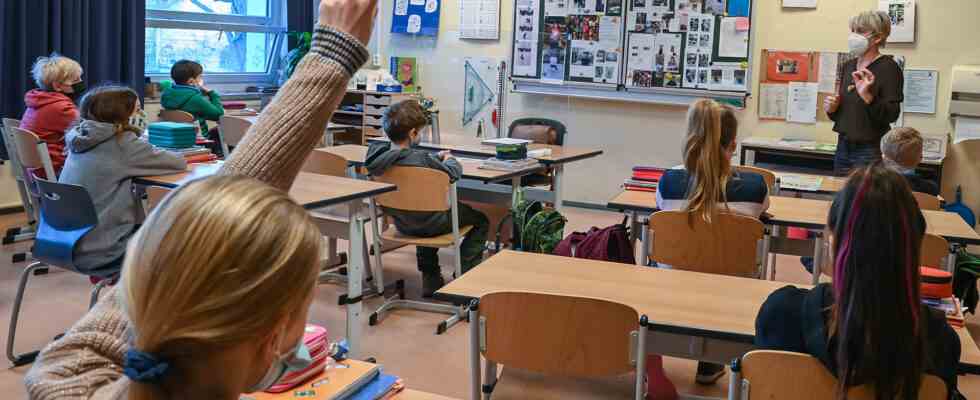Status: 17.10.2022 12:05 p.m
Fourth graders’ skills in German and mathematics have deteriorated significantly. According to the new IQB education trend, the downward trend accelerated. School closures during the pandemic are not a sufficient explanation for this.
The skills of fourth graders in the subjects German and mathematics have deteriorated significantly in the past year compared to previous studies in 2011 and 2016. This is shown by the new IQB education trend 2021, which was commissioned by the Conference of Ministers of Education (KMK) and has now been published. The Conference of Ministers of Education announced that the negative trend had increased since 2016. Above all, the social background has a growing influence on the educational success of the students. Children with an immigrant background are having an increasingly difficult time.
For the current study, the Institute for Quality Development in Education (IQB) examined the skills of fourth graders in German and mathematics. More than 26,000 fourth-grade students from around 1,400 schools took part in the study. The data was collected between April and August 2021, i.e. one year after the start of the corona pandemic, the lockdowns of which also meant that school classes were temporarily unable to take place.
Negative trend recognizable even before the pandemic
According to the study, the proportion of high-performing students who meet or exceed the standard decreased in both German and mathematics. At the same time, the proportion of students who do not achieve the minimum standard and are therefore at high risk of a less successful educational path increased in all areas of competence, in some cases significantly.
Specifically, every fifth fourth grader has problems with reading and arithmetic, and almost every third with spelling. According to the KMK, it can be assumed from studies in other countries whether the corona pandemic with the restrictions on on-site school operations was the decisive factor during the investigation period from April to August 2021. However, it cannot be said with certainty for Germany. The negative trend could already be observed before the pandemic. However, the IQB study made it clear that the home learning environment during the pandemic is strongly related to how well a child is doing at school. Inadequate equipment could impair the learning success.
“Worrying” results
“The results of the IQB education trend are worrying,” the authors write. There is agreement that “such numbers are unacceptable.” Children from families with a migration background are particularly affected by the negative values. Deteriorated scores in reading, listening, mathematics and spelling skills are “also recorded in children without an immigrant background and in children from socially better off families,” according to the study.
There are differences between the states, but overall the results show a nationwide trend. It can be observed “how much children depend on a reliably functioning school system,” write the authors of the educational trend. The study emphasizes that the shortage of teachers is an ongoing challenge. It is therefore difficult to improve the bad values and to keep the improvements that have been made stable.
The incumbent KMK chairwoman and Schleswig-Holstein Minister of Education Karin Prien (CDU) called the results “sobering”. “In Germany we invest too little in elementary school,” she explained. The acquisition of German and math skills must be given more attention in daycare. “As KMK, we will have to think about how we can restore more educational equity,” explained Prien. Federal Education Minister Bettina Stark-Watzinger said: “The IQB education trend 2021 is delivering alarming results that must shake us up.”
Improvements in Bavaria and Saxony
Contrary to the trend, only a few federal states achieved an improvement compared to the last survey period, such as Bavaria and Saxony, while in Bremen, Hamburg and Rhineland-Palatinate the results compared to the comparison period of the last survey could at least be maintained, albeit at different levels.
Due to the current results, the Hamburg school senator Ties Rabe called for a discussion about more effective pedagogy that would achieve greater educational success in core competencies. “Obviously we haven’t yet found the right answers to the growing number of students who get less tailwind at home,” says Rabe.

